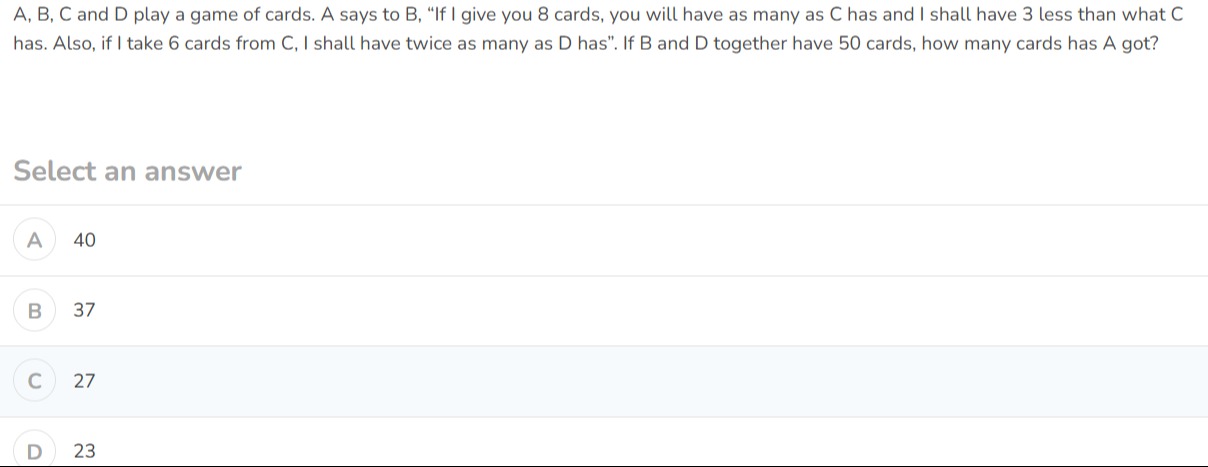Question
Question: A, B, C and D play a game of cards. A says to B, "If I give you 8 cards, you will have as many as C ...
A, B, C and D play a game of cards. A says to B, "If I give you 8 cards, you will have as many as C has and I shall have 3 less than what C has. Also, if I take 6 cards from C, I shall have twice as many as D has". If B and D together have 50 cards, how many cards has A got?

40
37
27
23
40
Solution
The problem can be solved by setting up a system of linear equations based on the given statements. Let A, B, C, and D represent the number of cards each person has.
From the first statement: "If I (A) give you (B) 8 cards, you will have as many as C has and I shall have 3 less than what C has."
- B's new cards = B + 8. This equals C's cards: B+8=C⋯(1)
- A's new cards = A - 8. This is 3 less than C's cards: A−8=C−3⋯(2)
From the second statement: "Also, if I (A) take 6 cards from C, I shall have twice as many as D has."
- A's new cards = A + 6. This is twice D's cards: A+6=2D⋯(3)
From the third statement: "If B and D together have 50 cards"
- B+D=50⋯(4)
Now, we solve this system of equations:
From equation (2), express A in terms of C: A=C−3+8 A=C+5⋯(5)
Substitute C from equation (1) into equation (5): A=(B+8)+5 A=B+13⋯(6)
From equation (3), express D in terms of A: D=2A+6⋯(7)
Substitute A from equation (6) into equation (7): D=2(B+13)+6 D=2B+19⋯(8)
Now substitute D from equation (8) into equation (4): B+2B+19=50
Multiply the entire equation by 2 to eliminate the fraction: 2B+(B+19)=100 3B+19=100 3B=100−19 3B=81 B=381 B=27
Finally, substitute the value of B back into equation (6) to find A: A=B+13 A=27+13 A=40
Thus, A has 40 cards.
